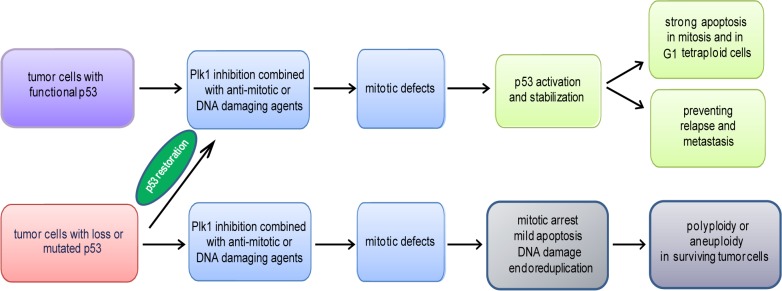Figure 3. Schematic illustration of the impact of the p53 status on the efficacy of Plk1 inhibition.

Mono-therapy of Plk1 inhibition shows a moderate effect in clinical trials, suggestive of combined therapy with other agents, such as anti-mitotic or DNA damaging drugs. Tumor cells with functional p53 respond to Plk1 combined therapy with severe mitotic defects, activation of p53 followed by strong apoptosis in mitosis and in G1 tetraploidy. As p53 is involved in the regulation of the self-reprogramming of cancer stem cells and Plk1 inhibitors target the tumor initiating cells, it is conceivable to suggest that this strategy could empower cancer therapy by preventing relapse and metastasis. p53 restoration in tumor cells with loss or mutated p53 will reinforce the efficacy of Plk1 combined therapy. Otherwise, upon Plk1 combined therapy, tumor cells without functional p53 exhibit a modest apoptosis, DNA damage in mitosis, a longer mitosis linked to endoreduplication, which could make surviving tumor cells more malignant.
